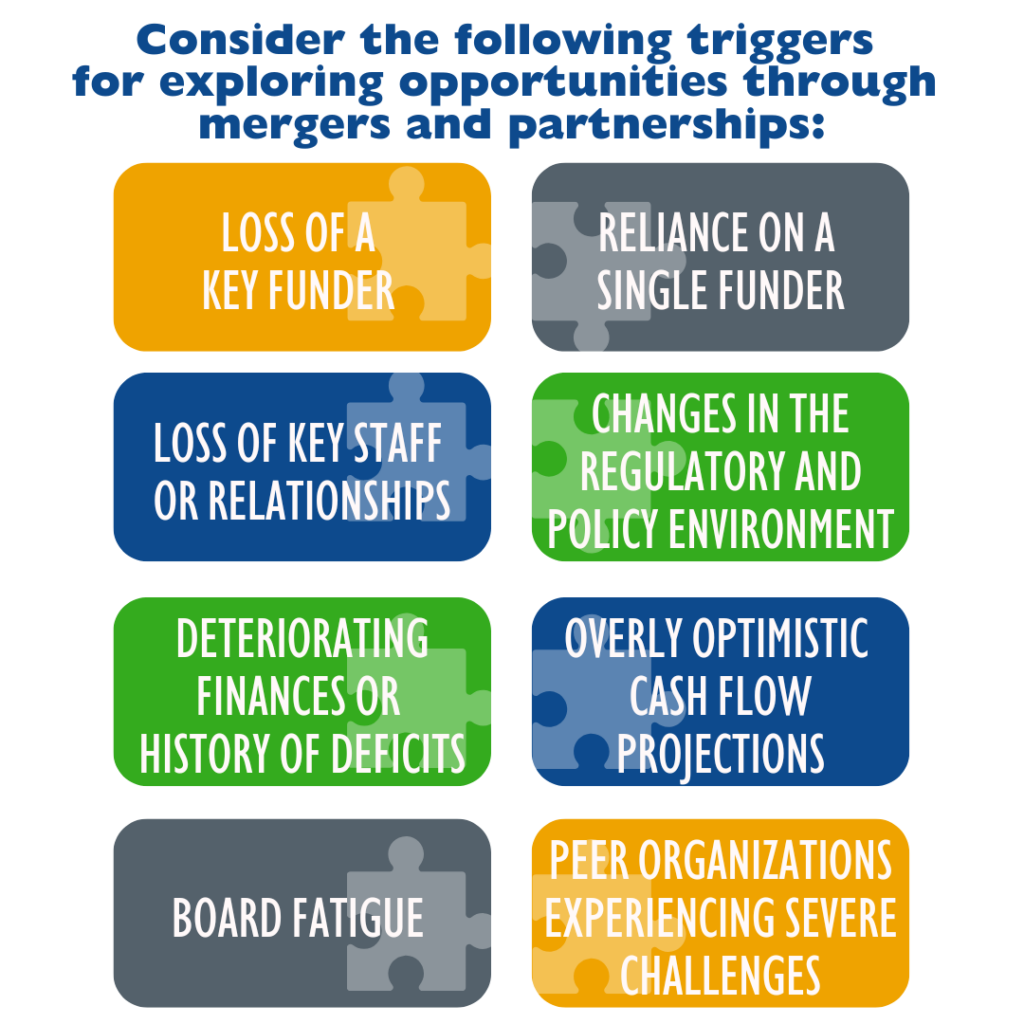Don’t Be Late to the Party
Hard to remember now, but when the pandemic hit in 2020 there were many (ourselves included) thinking it could be a “mass extinction event” for nonprofits. But good sense and good federal policy prevailed and along came PPP and ERTC and many nonprofits were saved from the brink. In fact, some enjoyed greater financial stability than they had had in a long while.
Unfortunately, we all know this turn of events was not to last. Many organizations now look back over the past five years and can chart a blip in financial performance, with peaks steep as ski slopes from 2020 to 2022 and then, in many cases, a return to levels more consistent with past performance. Some have been able to navigate a soft landing from this whiplash, but others have not been able to recover even to 2019 levels due to changes in government funding and contracting, a drop off in fundraising, and increases in expenses that are difficult at best to sustain.
It is not unexpected that there would be a correction in the sector with some nonprofits like Girls in Tech or the Denver Voice not being able to withstand the forces at hand.
However, the speed at which we are seeing some closures has been concerning.
Much has been made about high profile closures such as Benefits Data Trust including commentary by my colleague Christine Chen. In this case, as in the University of the Arts closure, also in Philadelphia, attempts were made to secure merger partners to preserve at least some of the programs or assets of the organization, but they failed. Why?
At La Piana Consulting we have facilitated mergers and strategic partnerships among nonprofits for over 25 years. We have found that far too many organizations fail to consider how they might preserve their programs or grow their impact through partnership until it is too late. Negotiating from a position of strength and stability rather than crisis can often mean the difference between saving essential programs and seeing them disappear.
The trick is knowing when to start the conversation with a potential partner. Boards and staff have a lot on their plate, and you don’t want to wake up one day as the proverbial frog in the pot of boiling water.

It’s not a bad idea to consider strategic partnerships on an annual basis as part of regular planning. If that has not been the norm in your organization, consider the following triggers for exploring opportunities through mergers and partnerships:
- Loss of a key funder
- Reliance on a single funder
- Loss of key staff or relationships
- Changes in the regulatory and policy environment that will negatively impact your organization
- Deteriorating finances or history of deficits
- Cash flow projections that rely on overly optimistic estimates
- Board fatigue
- Peer organizations experiencing closures or severe challenges
If you have concerns, here are some things to consider:
- Don’t be afraid to share your concerns. Exploring partnership is an opportunity for organizations to refine how they think about their impact. Leadership teams should normalize these discussions, evaluate options responsibly, and make corresponding decisions that put mission first.
- Squash any magical thinking. Identifying and addressing problems early is the best course.
- Set triggers for action. Monitor financial performance closely and if the trajectory deteriorates follow through on your chosen course of action.
- Talk to funders early and as partners in your shared work.
- Initiate discussions with organizations you trust. Don’t wait to be approached. Be bold, proactive, and strategic.
Most nonprofits that close suddenly were the beneficiaries of years of investments by individual donors, philanthropy, and/or public funding sources. Preserving what is salvageable from the assets or programs of an otherwise failing organization is the responsibility of those entrusted with its mission and resources abound to help you. Don’t be late to the party and miss the opportunity to strengthen or preserve your mission through partnership or merger. You may end up becoming an unfortunate headline.


Comment section